NEWS
Buhari not worldly, materialistic – Gowon
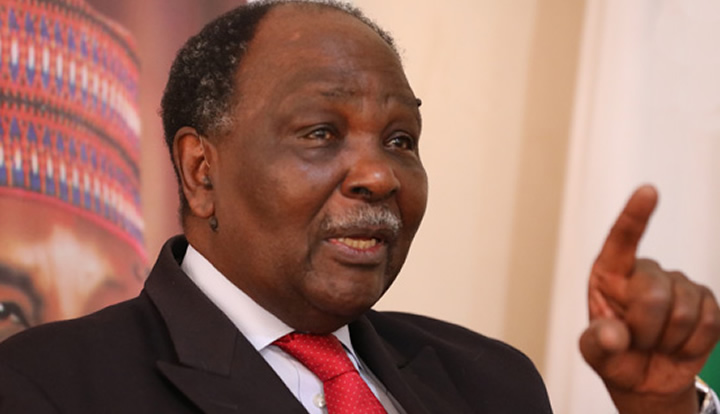
- /home/bnckfvdk/public_html/wp-content/plugins/mvp-social-buttons/mvp-social-buttons.php on line 27
https://osundailyng.com/wp-content/uploads/2025/07/Buhari-not-worldly-materialistic-Gowon.jpg&description=Buhari not worldly, materialistic – Gowon', 'pinterestShare', 'width=750,height=350'); return false;" title="Pin This Post">
- Share
- Tweet /home/bnckfvdk/public_html/wp-content/plugins/mvp-social-buttons/mvp-social-buttons.php on line 72
https://osundailyng.com/wp-content/uploads/2025/07/Buhari-not-worldly-materialistic-Gowon.jpg&description=Buhari not worldly, materialistic – Gowon', 'pinterestShare', 'width=750,height=350'); return false;" title="Pin This Post">
Former Military Head of State, Yakubu Gowon, on Wednesday disclosed that ex-President Muhammadu Buhari is not inclined to worldly and materialistic overtures.
Gowon said nobody can doubt the fact that Buhari has the interest of Nigeria at heart and has guarded his integrity.
He disclosed this on Wednesday during the public presentation and book launch of “According to the President: Lessons from a Presidential Spokesman’s Experience,” authored by Garba Shehu, the former Senior Special Assistant, Media and Publicity.
Commending Shehu for the book, Gowon said communication plays a vital role in governance and nation-building.
According to Gowon: “I know General Buhari to be a staunch believer in the Nigerian project. I know him as a person not inclined to worldly or materialistic overtures.
“I also know that he will do everything to keep his integrity intact. If the truth must be told, Gen. Buhari is a man of austere lifestyle.”
NEWS
SEMB moves to stop abroad-based teachers from collecting salaries in Abia
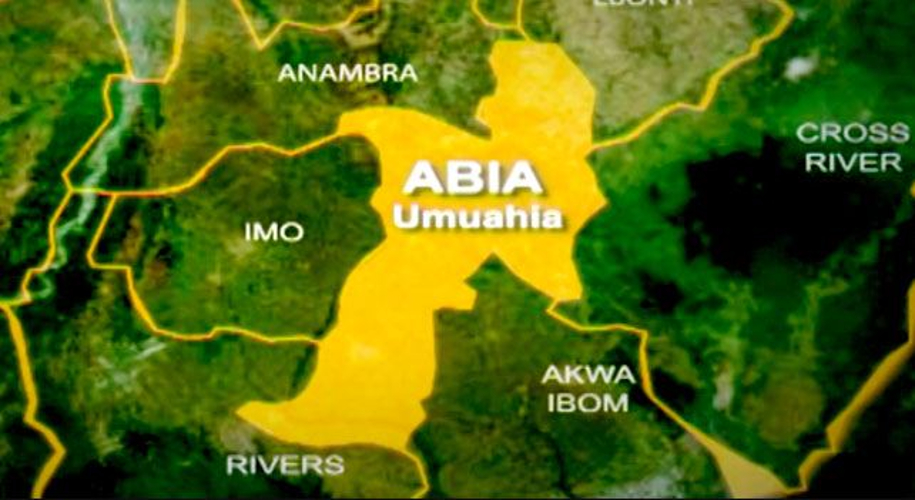
Abia State Secondary Education Management Board, SEMB, has disclosed that some teachers who are supposed to be teaching in the state’s senior secondary schools are abroad, but still collecting salaries.
This is even as SEMB said that only 1,700 teachers were available in senior secondary schools in the state before the recent recruitment exercise carried out by Governor Alex Otti.
The Director in charge of SEMB, Mrs. Ngozi Onwubiko, made this known on Wednesday in her office while speaking to journalists about the range of reforms introduced by her Board.
Mrs. Onwubiko, who explained the reasons for the ongoing physical verification for senior secondary school teachers in Abia, said, “Do you know that some of these teachers are abroad and they will be taking salary?”
She pointed out that the verification, which is being done in coordination with the offices of the Head of Service and Accountant General, is designed to ensure that only qualified and available teachers remain on the payroll.
Mrs. Onwubiko also said that SEMB enforces a zero-tolerance policy for absenteeism and truancy among teachers, warning that any staff of the Secondary Education Management Board found or confirmed to be extorting teachers for preferred postings will be queried and punished severely.
The Director, who expressed gratitude to Governor Otti for the recruitment of more than 2,000 new teachers for senior secondary schools, said that the last employment of teachers for secondary schools in Abia took place in 2007.
Mrs. Onwubiko, however, said that 4,000 more teachers are needed in the secondary education system to meet the current demand in science and technical subjects of the 260 active schools.
The SEMB Director announced that some schools that closed down in the past have been revived by Governor Otti, with students back to study, adding that weekly sports in secondary schools would prepare students for future employment opportunities and dissuade them from deviant acts.
NEWS
IMF commends FIRS for reform progress, pledges continued support on tax administration
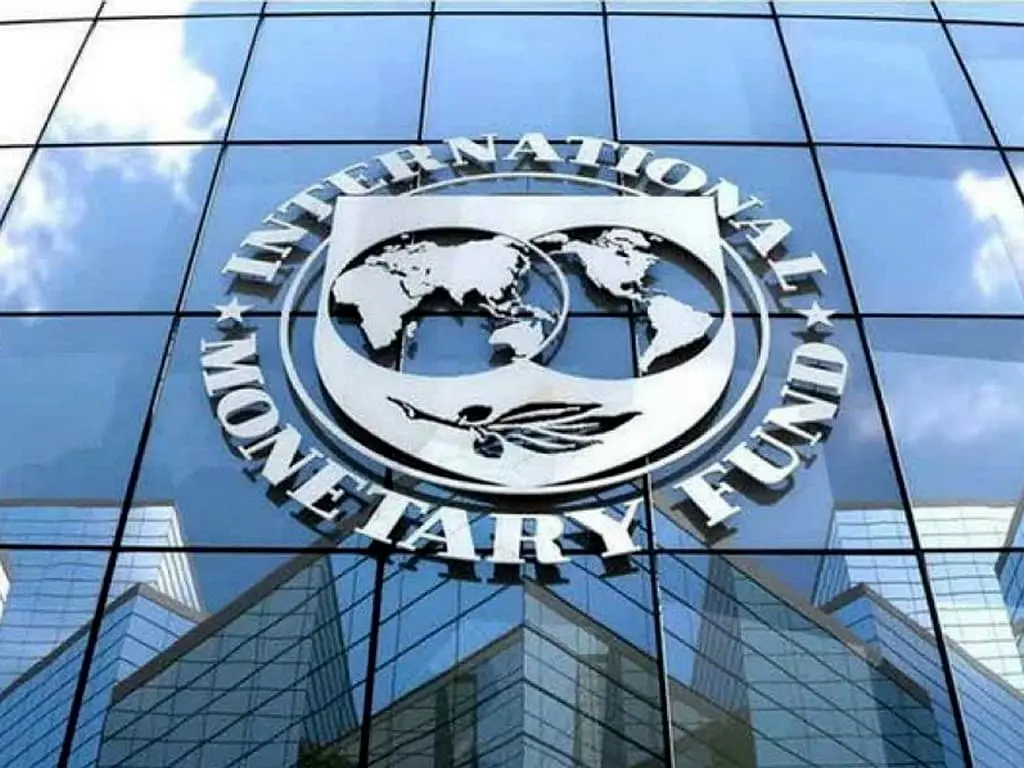
The International Monetary Fund (IMF) has lauded the Federal Inland Revenue Service (FIRS) for making significant strides in tax administration and institutional reform, describing the agency’s progress as commendable and impactful.
Speaking on Wednesday during the opening session of the IMF-supported Headquarters Mission at the FIRS headquarters in Abuja, Paulo Paz, a Senior Economist at the IMF Fiscal Affairs Department, said the Fund recognizes the “good work” FIRS is doing under the leadership of its Executive Chairman, Zacch Adedeji.
Paz emphasized that the Bretton Woods institution remains committed to supporting the agency, particularly in navigating challenges arising from the four newly signed tax reform laws. He said these laws have further elevated FIRS’s role in national development and revenue mobilization.
“We want to know how we can best support you with this new challenge. Our take on the four tax laws is first recognition of the excellent work that FIRS has been providing to the citizens,” Paz said.
“You have, at the same time, the recognition and new responsibilities with these very powerful laws, which will increase the relevance of the tax administration in Nigeria.”
He assured FIRS of continued IMF support, saying: “We congratulate you for the good results so far. There is more to come, and we are here to help.”
In his response, the FIRS Chairman Zacch Adedeji, represented by his Chief of Staff, Tayo Koleosho, expressed appreciation to the IMF for its sustained partnership with the agency
He noted that the collaboration had been particularly beneficial in areas like portfolio management, digital transformation, VAT automation, and compliance improvement.
“IMF has gone on this journey with us, and I think we are in a good place to continue the journey together,” Koleosho said.
He also stated that the partnership would continue even as FIRS transitions to the Nigeria Revenue Service (NRS) next year.
Also speaking, Mrs. Bolaji Akintola, Coordinating Director of the Corporate Services Group at FIRS, reaffirmed the IMF’s critical role in driving Nigeria’s domestic revenue reforms. She noted that with IMF support, the agency conducted two Tax Administration Diagnostic Assessment Tool (TADAT) evaluations between 2018 and 2023.
She highlighted that the 2023 TADAT results showed marked improvement over 2018, citing it as evidence of FIRS’s commitment to institutional excellence.
“If another TADAT is conducted today, the result will be better than that of 2023,” she added, noting that several weak indicators flagged in the last assessment have now been addressed and codified in President Bola Tinubu’s tax reform legislation.
The IMF-FIRS mission is expected to continue with consultations on how best to support Nigeria’s evolving tax landscape amid growing demands for efficient domestic resource mobilization.
NEWS
We’ll achieve 95% digital literacy by 2030 – Nigerian Govt
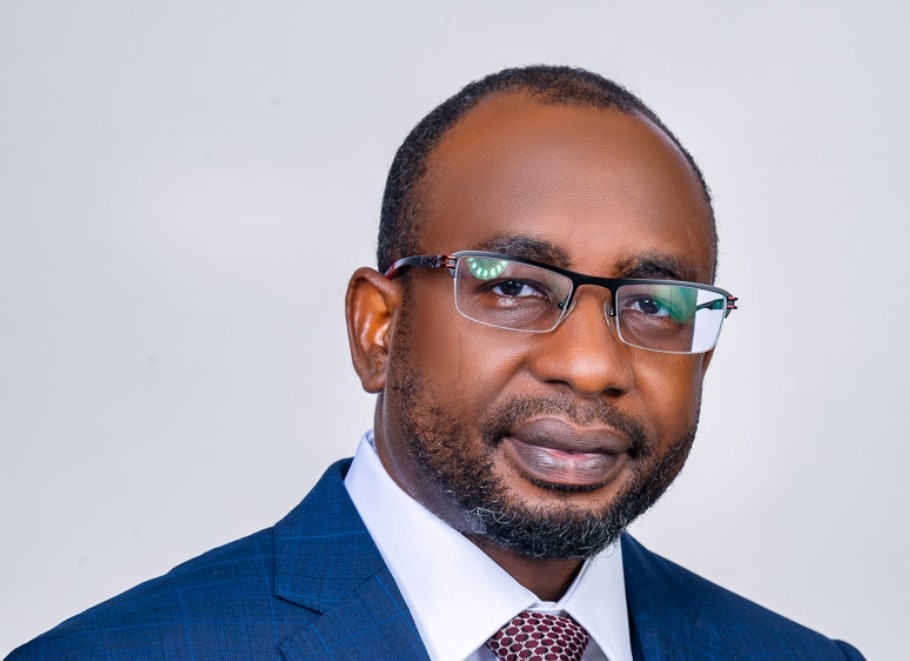
The Director General of the National Information Technology Development Agency, NITDA, Kashifu Inuwa, has reaffirmed the Federal Government’s commitment to achieving 95% digital literacy across Nigeria by the year 2030, with an ambitious milestone of 70% by 2027.
This disclosure was made in total alignment with the present administration’s priority areas of reforming the economy for sustained inclusive growth and accelerating diversification through industrialisation, digitisation, creative arts, manufacturing, and innovation.
Making this known during a collaborative meeting hosted by the Universal Basic Education Commission, UBEC, Inuwa highlighted the government’s strategic prioritisation of human capital development as central to its national transformation agenda.
“We started this journey in 2023 when President Bola Ahmed Tinubu came on board and he made it clear that economic diversification and inclusivity are part of the administration’s agenda,” he noted.
“And the president outlined this in 8 priority areas to achieve the vision, with priority number 7 specifically focused on accelerating industrialisation, digitisation, creative arts, manufacturing, and innovation,” he added.
Recognising the importance of digital fluency in achieving this agenda, he stated that NITDA is committed to investing in the digital empowerment of citizens through the development of the National Digital Literacy Framework (NDLF), a strategic blueprint aligned with international best practices.
He added that to tailor the framework to Nigeria’s specific needs, 6 core competency areas were incorporated to include device and software operations, information and data literacy, communication and collaboration, content creation, safety, and problem solving.
He explained that the framework would address all levels of digital fluency, from basic, intermediate to advanced levels, to make digital skills accessible to every Nigerian, from primary school pupils to working professionals.
According to Inuwa, despite data limitations, NITDA estimates that Nigeria’s digital literacy rate currently stands at 50%, up from 44% in 2021, based on extrapolations from the World Bank’s Better Life Report.
The NITDA DG disclosed that the agency has been working closely with the Nigerian Educational Research and Development Council (NERDC) in developing a curriculum for digital literacy, which can be infused into formal education.
He said the visit is a continuation of NITDA’s ongoing engagements with key education stakeholders, including the Federal Ministry of Education, the National Universities Commission, NUC, and the Nigerian Educational Research and Development Council, NERDC, all aimed at advancing digital literacy across all levels of learning.
Inuwa also revealed ongoing collaborations with global platforms such as Coursera to train teachers using AI-powered lesson generation tools and provide scalable online training.
It is worth recalling that late last year, NITDA partnered with the Nasarawa State University in collaboration with CISCO in launching the Digital Learning for NSUK, DL4NSUK initiative to enhance digital literacy in tertiary institutions, and equipping graduates with the skills needed to be digitally proficient and globally competitive.
While stressing that the entire process, from curriculum development to classroom delivery, would require a whole-of-government and whole-of-society approach, Inuwa said, “This is not a journey we can walk alone; we must bring everyone on board, education stakeholders, technology providers, state governments, and international partners.”
In response to the DG’s remarks, UBEC Executive Secretary, Hajiya Aisha Garba, confirmed that the Commission has officially received the digital literacy curriculum developed by NITDA and NERDC and has commenced internal review processes.
She acknowledged the curriculum as robust and forward-looking but stressed the need for simplification to suit early learners and teachers, citing challenges such as curriculum overload, limited teacher capacity, and inadequate infrastructure as key barriers to effective implementation.
She pledged that UBEC, in partnership with the State Universal Basic Education Board (SUBEB), will lead efforts to equip schools with computers and solar-powered infrastructure to support real learning.
“We’re committed to working with NITDA and NERDC to refine the curriculum, train teachers, and ensure effective delivery. Let us align the technical vision with grassroots realities to make a lasting impact,” she concluded.
-
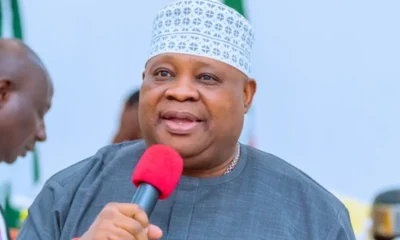
 NEWS2 weeks ago
NEWS2 weeks agoOzekhome asks AGF to enforce court rulings affirming PDP’s victory in Osun local govt polls
-
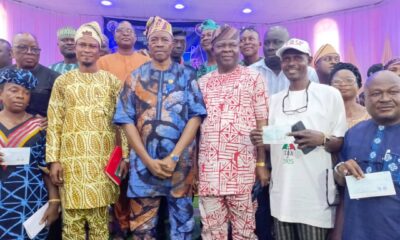
 NEWS3 weeks ago
NEWS3 weeks agoSenator Fadahunsi Launches Revolving Loan Scheme Empowering Over 700 Entrepreneurs in Osun East
-
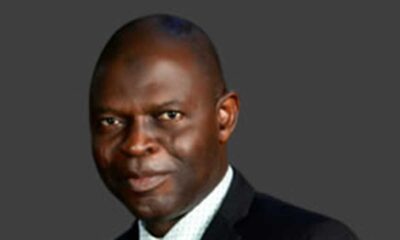
 NEWS2 weeks ago
NEWS2 weeks agoSAN slams FG, alleges bid to divert Osun LG allocation
-
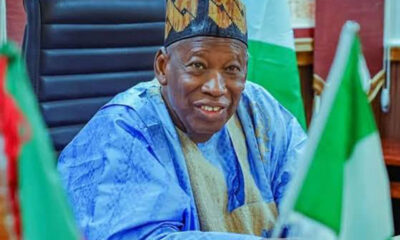
 NEWS2 weeks ago
NEWS2 weeks agoBREAKING: APC National Chairman, Ganduje resigns
-

 NEWS1 week ago
NEWS1 week agoOzekhome Rebukes Adegoke’s Letter, Warns Against Distortion of Court Rulings
-
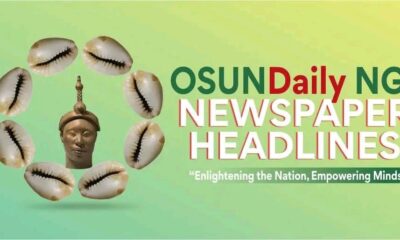
 NEWS3 weeks ago
NEWS3 weeks agoTop Nigerian Newspaper Headlines For Today, Wednesday, 18th June, 2025
-

 NEWS6 days ago
NEWS6 days agoFCT: Many feared dead in terrible accident on Nyanya-Keffi road
-
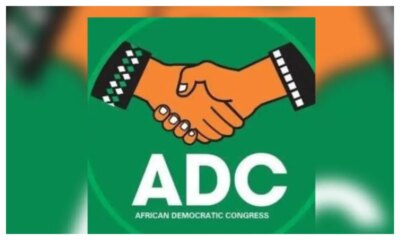
 NEWS1 week ago
NEWS1 week agoBREAKING: 2027: ADC’s entire leadership steps down after adoption by coalition



